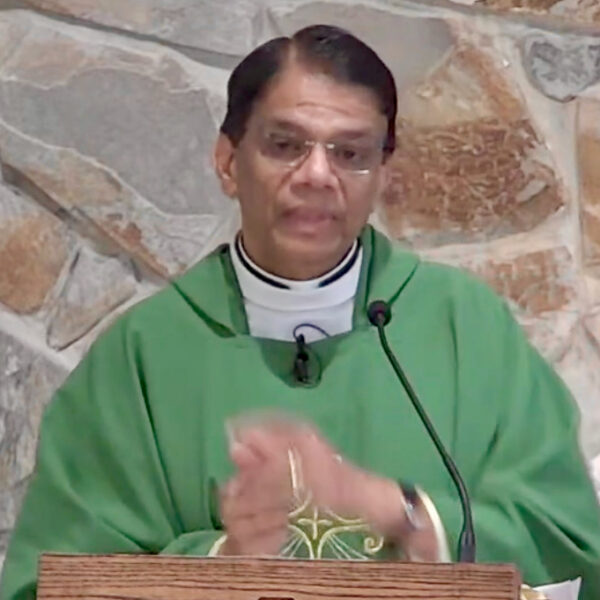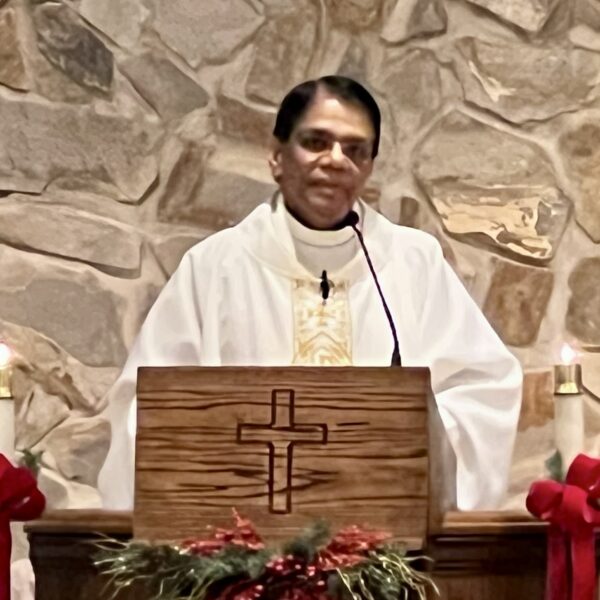Transfigured Christ in His Glory
In today’s Gospel, we go up to the mountain with Peter, John, and James. There we see Jesus “transfigured,” speaking with Moses and Elijah about His “exodus.”
The Greek word “exodus” means “departure.” But the word is chosen deliberately here to stir our remembrance of the Israelites’ flight from Egypt.
By His death and resurrection, Jesus will lead a new Exodus, liberating not only Israel but every race and people—not from bondage to Pharaoh, but from slavery to sin and death. He will lead all mankind, not to the territory promised to Abraham in today’s First Reading, but to the heavenly commonwealth that Paul describes in today’s Epistle.
Moses, the giver of God’s law, and the great prophet Elijah, were the only Old Testament figures to hear the voice and see the glory of God atop a mountain.
Today’s scene closely resembles God’s revelation to Moses, who also brought along three companions and whose face also shone brilliantly. But when the divine cloud departs in today’s Gospel, Moses and Elijah are gone. Only Jesus remains. He has revealed the glory of the Trinity—the voice of the Father, the glorified Son, and the Spirit in the shining cloud. Jesus fulfills all that Moses and the prophets had come to teach and show us about God. He is the “chosen One” promised by Isaiah, the “prophet like me” that Moses had promised. Far and above that, He is the Son of God. “Listen to Him,” the Voice tells us from the cloud. If, like Abraham, we put our faith in His words, one day we too will be delivered into “the land of the living” that we sing of in today’s Psalm.
When Moses met with God on Mount Sinai, the skin of his face shone because he had been talking with God. Paul says that the Israelites could not look at Moses’ face because of its brightness. In the Gospel account Jesus appeared in glory with Moses, the great lawgiver of Israel, and with Elijah, the greatest of the prophets, in the presence of three of his beloved apostles. The significance of this mysterious appearance is that Jesus went to the mountain knowing full well what awaited him in Jerusalem—his betrayal, rejection and crucifixion. Jesus very likely discussed with Moses and Elijah this momentous decision to go to the cross. God the Father also spoke with Jesus and gave his approval: This is my beloved Son; listen to him. The Father glorified his Son because he obeyed. The cloud which overshadowed Jesus and his apostles fulfilled the dream of the Jews that when the Messiah came the cloud of God’s presence would fill the temple again. The Lord Jesus not only wants us to see his glory—he wants to share this glory with us. And Jesus shows us the way to the Father’s glory: follow me—obey my words—take the path I have chosen for you and you will receive the blessings of my Father’s kingdom—your name will be written in heaven. We shall look forward to seeing his glory with Him one day in Heaven.
Love and Prayers,
Fr. Charley

